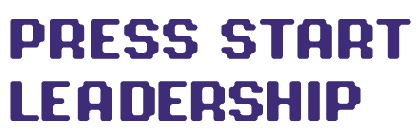Unlocking Potential in Pixel Paradise: Strategies for Effective Talent Development and Retention in Game Studios
Unveiling the Player-Character: Understanding the Importance of Talent Development
Ladies, gentlemen, and joystick jugglers of all descriptions, have you ever been so engrossed in a game that you lost track of time? Yes? Well, it’s probably because of the enchanting world created by a team of highly talented and skilled individuals. The artistry, the programming, the storytelling – these elements of game design require diverse talents honed to perfection. Nurturing these talents isn’t just about filling a seat or crafting a masterpiece; it’s about giving people the room to grow, thrive, and fully realize their potential. Let’s take a virtual walk together through the halls of your hypothetical game studio to understand why talent development is the linchpin in your studio’s success.
Leveling Up: Fostering Skill Development in Your Game Studio
As the captain of your ship, or should I say, the game master of your tabletop RPG, one of your key roles is to help your team level up their skills. Skill development is akin to going on a grind in an MMORPG, where you need to farm experience points to progress your character. Only this time, it’s less about slaying dragons and more about learning new programming languages, mastering the latest design tools, or navigating the complexities of narrative design.
Here’s the twist: it’s not enough to provide training and call it a day. Effective skill development is about creating a culture of continuous learning and development. Provide a wide variety of training opportunities, tailored to suit different learning styles. This could include workshops, webinars, peer coaching, or even self-paced online courses. By investing in your team’s skills, you’ll equip them with the tools they need to adapt, innovate, and produce high-quality work.
Perks of the Job: Benefits of Investing in Talent Development
Investing in talent development is akin to picking up an epic loot drop; it’s beneficial, satisfying, and it sets you up for the endgame. The benefits are manifold and reach far beyond the individual. For one, it leads to higher job satisfaction. Employees who feel their company is investing in their growth are more likely to feel valued and satisfied. This can translate into increased productivity and engagement.
Additionally, fostering skill development helps build a versatile and resilient team. In the fast-paced world of game development, new tools, techniques, and trends are emerging all the time. By encouraging continuous learning, you’ll be creating a team that can adapt to these changes, keeping your studio at the cutting edge of the industry.
Player Retention: Strategies to Retain Top Talent in Your Game Studio
Think of your team members as your cherished player base. Just as you’d want to keep your players coming back for more, you’ll want to retain your talented team members. But unlike in your games, you can’t rely on daily login bonuses or seasonal events to keep your team engaged. In reality, the strategies are a bit more nuanced.
One way is to provide opportunities for career advancement. Show your team that there’s room for them to grow and take on bigger challenges. This could mean promoting from within or creating pathways for employees to move into different roles within the studio.
Furthermore, acknowledge and reward their hard work. This doesn’t just mean giving out bonuses (although that certainly helps). It could be as simple as publicly recognizing their contributions or offering extra vacation days. Recognition and reward show your team that their efforts are valued, boosting morale and motivation.
Remember, in the game of talent retention, the aim is to create a studio that’s not just a workplace, but a community, where everyone feels valued, challenged, and engaged. Only then can you truly win at the talent game.
The Magic of Mentoring: Embracing a Mentorship Culture in Your Game Studio
Sure, you can read the rulebook, but sometimes it’s better to have a veteran player guiding you. This is where a culture of mentorship shines like the treasure at the end of a pixelated rainbow. When experienced team members mentor their less-experienced counterparts, they do more than just share their knowledge. They provide guidance, feedback, and invaluable insights that can only come from experience. This not only aids the personal and professional development of the mentee, but also reinforces the mentor’s own knowledge and leadership skills.
But don’t just stop at one-to-one mentorship. Consider launching group mentorship programs, where a senior team member can mentor a small group. This encourages collaboration and fosters a supportive community where everyone learns from each other’s experiences.
Game Testing: Regular Performance Reviews and Feedback
In game development, you wouldn’t release a game without rigorous testing and several iterations, would you? The same concept applies to talent development. Regular performance reviews are a must. They provide a framework for constructive feedback, setting goals, and acknowledging achievements.
While annual reviews are standard in many industries, consider implementing more frequent reviews or check-ins. This gives your team members regular opportunities to reflect on their progress, discuss their challenges, and set new goals.
The Respawn Mechanic: Dealing with Setbacks in Skill Development
Just as every gamer has experienced the agony of a ‘game over’ screen, every professional will face setbacks. The trick lies in managing these setbacks constructively. Remember, a setback is just an opportunity for a comeback!
First, encourage an environment where mistakes are treated as learning opportunities. Nobody wants to be the NPC that caused the team wipe, but it happens. Instead of blaming, turn these situations into teachable moments. After all, failing and learning from it is an integral part of gaming, isn’t it?
Second, provide support for team members who are struggling. This might be additional training, resources, or mentorship. Show them that one setback doesn’t define their entire journey, and that the studio is committed to helping them succeed.
The Final Boss: Cultivating a Leadership Pipeline
The last and arguably most challenging level of talent nurturing is creating a leadership pipeline. This means identifying potential leaders within your team and giving them the tools and experiences they need to become effective leaders.
Start by providing leadership training and opportunities for potential leaders to take charge of projects or teams. The transition from being a team member to leading a team is a significant one, and it’s important to provide the support they need to navigate this change.
As the studio head, you also have a vital role in modelling good leadership. Show them what it means to be a leader who supports their team, makes tough decisions, and always strives for excellence. This can be a powerful way to inspire your future leaders and instill in them the values and qualities that will serve your studio well in the years to come.
By investing in talent development and retention, you’re not just building a strong team. You’re ensuring the long-term success and sustainability of your studio. So, gear up and start nurturing the incredible talent in your studio, because the journey from gamer to leader is one epic quest that’s truly worth embarking on!
Thank you for reading this article to the end. I hope it has been informative and helpful. If you’d like to learn more about the topics we covered, I invite you to check out my podcast and my YouTube channel where I delve into these subjects in more depth.
Additionally, I would love to stay in touch and keep you updated on all the latest developments and insights in the world of leadership. That’s why I encourage you to sign up for my newsletter. Not only will you receive regular updates, but as a thank you for joining, I will also send you my free eBook, “5 Heroic Leadership Skills.” This eBook is packed with practical tips and strategies that will help you take your leadership skills to the next level.
So don’t wait! Sign up for my newsletter today and start your journey towards becoming a more effective and inspiring leader. I can’t wait to hear from you.


